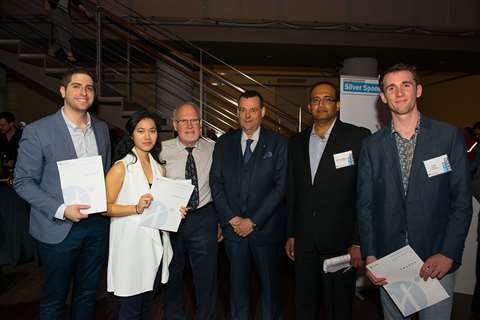Skyjack partners with university
06 September 2016

Skyjack recently partnered with fourth-year industrial design students from the Bachelor in Industrial Design program offered by Humber College’s School of Applied Technology, which is based in Toronto, Canada. Skyjack challenged the students to work on the aesthetic styling of Skyjack’s DC scissors, RT scissors, articulated booms and telescopic booms.
Among the ideas students proposed were concepts for terrain detection and new camera systems.
“The students’ designs were an impressive mix of innovation and practicality,” said Malcolm Early, vice president of market, Skyjack. “They independently visited customers and job sites, then used those inputs to come up with innovative ideas ranging from terrain detection to camera systems.”
“This styling project was awesome. When we interacted with a lift on our own, we saw different areas where we could improve the machine’s ergonomics,” said Michelle Tran, a student who participated in the project. “One thing I learned through this project is that whatever we designed, we had to take manufacturability and keeping costs low into consideration.”
The partnership was part of an industrial design practices course, where faculty members in charge Dennis L. Kappen and Glenn Moffatt, asked 27 students to research competitive brands, visit equipment rental companies, conduct ethnographic research and assimilate operators and rental companies’ feedback on the Skyjack products.
“We also asked them to incorporate ergonomics and human factors design criteria into their design,” Kappen said.
The eight-week partnership kicked off with a visit to Skyjack’s plant where students saw the various mobile elevating work platforms’ functions and how users interact and operate it.
“My key take away from this project was the importance of user experience and the use of considerate ergonomics as a remedy,” said Elio Pedulla, another Humber College student who took part in the project. “The most beneficial thing about the project was the one-on-one direction and critiques that we received from Skyjack staff on a weekly basis. Their guidance helped to inform better design and complemented our creative process.”
The students’ concepts were entered into a Skyjack-sponsored competition, where a team of Skyjack senior executives, engineers and designers judged the ideas based on creativity, practicality and presentation. Three teams were awarded a total of $5,000. Students said the partnership expanded their understanding of the industrial design process.
“As a designer, I personally enjoyed how the Skyjack project challenged my design sensibilities,” Pedulla said. “Understanding Skyjack’s culture and the labor/construction force helped me to angle planning and design to offer a better product for the end user.”






